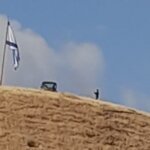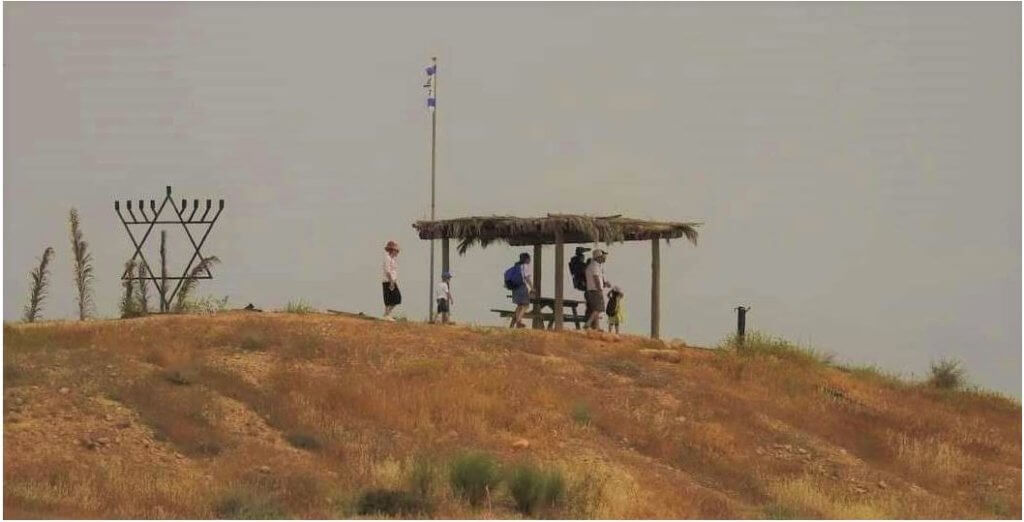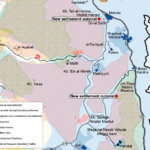Haaretz: Settlers Build New Illegal Outpost on Private Palestinian Land – With Israeli Authorities’ Knowledge
Israeli army says stop-work orders have been issued and further enforcement efforts will be taken in Jordan Valley, but Haaretz saw work continuing on Thursday.
By Amira Hass: First published in Haaretz Oct 23 2016
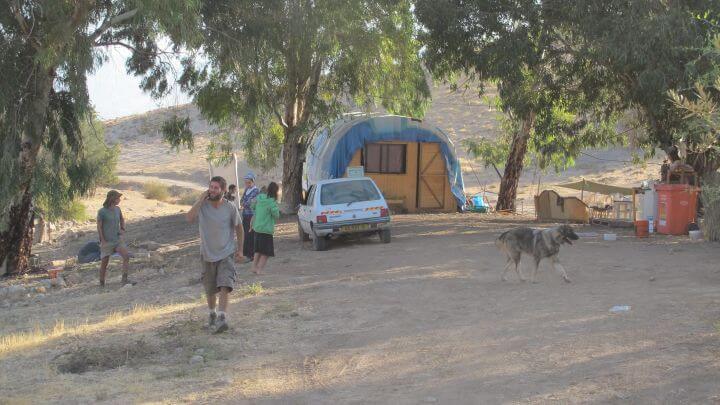
A new, unauthorized outpost is being constructed in the northern Jordan Valley on privately owned Palestinian land. The outpost has been established in close proximity to another illegal outpost, Givat Salit, which was created in 2001.
A man identified as “Tzuriel” and who was said by his associates to be the “boss” of the new outpost, refused to answer questions from Haaretz on the matter last Thursday.
The Coordinator of Government Activities in the Territories said a stop-work order has been issued at the outpost. It added that a patrol conducted on Thursday revealed construction at the site had ceased, and that further enforcement activity will be carried out as necessary.
However, a visit by Haaretz the same day revealed that construction was continuing.
The area in which construction was being carried out had expanded to an adjacent hilltop and included the laying of a water pipe and the initial construction of a livestock pen. The hilltop, it should be noted, is considered state-owned and not privately owned Palestinian land.
On Thursday, COGAT issued a statement saying: “At the end of September, illegal construction was noted, against which stop-work orders have been issued. Continued enforcement will be carried out in accordance with professional and operational considerations. A patrol today found that work had stopped. After the [Sukkot] holiday, an additional patrol will be arranged and any additional enforcement steps required will be taken.”
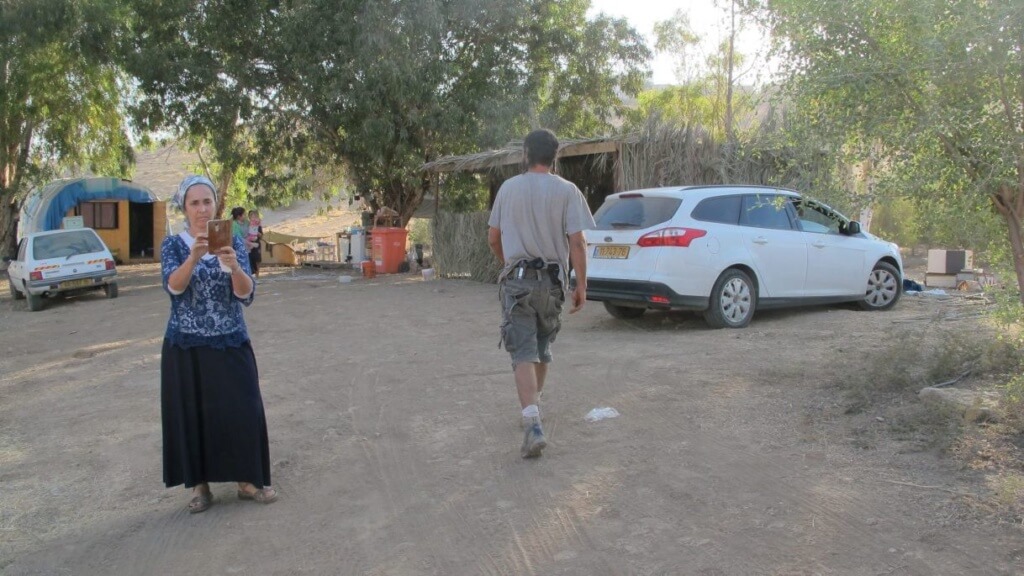
More than a week ago, the people at the outpost allegedly began threatening Palestinian shepherds, preventing them from bringing their flocks to their regular grazing lands on the hilltop. One of the settlers, Tzuriel, was allegedly seen armed with a gun.
On September 27, shortly after the outpost was established, forces from the Israeli Civil Administration demolished a Palestinian family’s entire tent encampment. The Ayoubs, a family of shepherds, have lived at the site for many years.
Shepherds from the area, as well as members of the Arab-Jewish activist group Ta’ayush, have told Haaretz that the outpost was established about five weeks ago in an area of eucalyptus trees. It consists of a large, curved wooden hut and a structure serving as a sukkah. Sofas and armchairs have been set up outside, along with an exterior kitchen with a refrigerator, sink and running water.
Last Thursday morning, there were 11 Israelis at the site: a couple who looked to be in their 40s, a baby, a boy, four older girls and three young men. Two of the girls took sheep out to graze. An older man and several young men dug a channel from the top of the hill to the outpost and ran the water pipe down the hill through it. “We’ve managed to do a lot today,” one of them remarked on Thursday morning.
Prior to that, they pounded iron fencing into the ground for what appeared to be a future livestock pen, as well as posts for what was seemingly the beginning of another structure. On Thursday afternoon, about 10 Israelis continued to carry out construction work at the site, Haaretz has learned. On Friday, sources told Haaretz that a water tank was installed at the site and additional iron posts installed.
Thursday morning also saw an Israeli jeep speed into a flock of livestock owned by the Ayoub family. The vehicle was identified as belonging to a resident of Shadmot Mehola, a settlement on the other side of the road in the area. It was built on land owned by Palestinians who have lived abroad since 1967. Members of the shepherd family said they are now concerned that the people from the outpost and their associates will physically harm their flocks, in addition to barring access to their pastures.
The separate unauthorized outpost of Givat Salit sits on 41 dunams (just over 10 acres) of land, some of which has been designated state-owned (and was registered as such before 1967). Another part, however, was built on privately owned Palestinian land. In recent years, settlers from Givat Salit have assumed control of another 33 dunams of private Palestinian land and planted olive trees and date palms there. Some of the grove is within an Israel Defense Forces firing zone.



